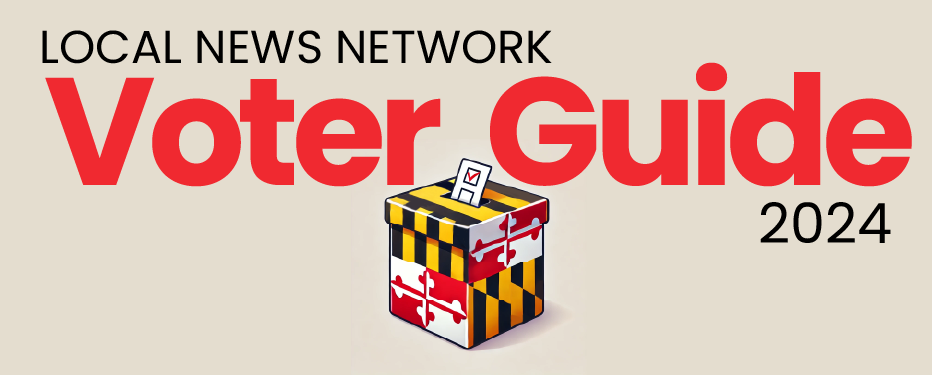Phelton Moss
Running for school board in Prince George's County District 7
How old will you be on Election Day (Nov. 5)?
34
Are you currently employed? If so, where, and what is your job title?
Professor of education policy and leadership.
What is the highest level of education that you completed, and where did you get that degree?
Doctorate, educational leadership.
Why are you running for the school board?
As a former teacher, middle school principal and proud product of public schools, I've experienced firsthand how transformative a quality education can be. As a teacher and principal, I woke up every day driven by the belief that education is the key to unlocking opportunity, particularly for students from marginalized backgrounds. I still hold that belief today, and I want to work to ensure that every child in our county has access to that same opportunity.
Growing up in a single-parent home as a Black boy in the Deep South, my family taught me the power of a good education. I was the first in my family to graduate from college and earn a Ph.D., and I owe much of my success to the dedicated teachers and school leaders who believed in me.
What makes you a good candidate for the board?
What makes me a strong school board candidate is my 13-year journey dedicated to serving students and their families. I've had the privilege to work as a teacher, a middle school principal, an education policy expert and now a professor of education policy and leadership. These roles have equipped me with a well-rounded perspective on the needs of students, educators and the community.
As a teacher and principal, I witnessed firsthand the challenges students face, particularly those from marginalized communities. This experience fuels my commitment to equity in education. As a policy expert, I've worked on solutions to these challenges, ensuring that decisions are made with the best interests of students in mind. Now, as a professor, I help shape the next generation of education leaders, grounding them in the values of justice, inclusion and high-quality education for all.
My experience across these roles and working for the U.S. House of Representative Committee on Education and Labor enables me to understand the complexities of education from multiple perspectives. This makes me uniquely qualified to bring about informed, thoughtful decision-making as a school board member, always with the goal of creating equitable opportunities for all students.
What is the most important issue facing your school board and what would you do about it if elected?
We pay far too much in taxes in this county for our schools not to meet the needs of every family. The most urgent issue facing our school board is ensuring that all students have the opportunity to succeed. This depends on three key areas: paying teachers a livable wage, creating safe and orderly schools and ensuring students are reading on grade level. These issues are deeply connected, and they are why I chose to run for school board.
First, our teachers deserve fair compensation. When teachers are paid a livable wage, it not only helps attract and retain high-quality educators but also fosters a more motivated and dedicated workforce, directly benefiting our students.
Second, creating safe and orderly schools is essential for learning. When students feel secure, they can focus on their education. We need to invest in proactive measures that enhance safety and promote a positive school climate.
Finally, ensuring students are reading at or above grade level is foundational for their long-term success. We must prioritize early literacy programs, targeted interventions and ongoing support to help students overcome reading challenges early on.
If elected, I will work to address these issues, always keeping equity and excellence for every student at the forefront.
Please name a public leader you admire and explain why.
I have always admired Congressman John Lewis for his unwavering fight for civil rights and justice. His lifelong dedication to standing up for what is right, even in the face of immense challenges, has been a powerful source of inspiration for me. Lewis’s courage, especially during pivotal moments like the march on Selma, showed the world the importance of persistence and moral conviction. His belief in nonviolent protest and his famous call to make “good trouble” reminds me that real change requires both action and sacrifice. I strive to follow his example by advocating for equity and justice in my own community.
The Blueprint for Maryland’s Future, passed by the General Assembly in 2021, is a 10-year plan that includes increased education funding to support early childhood education, increased teacher starting pay, college/career-readiness standards for high school graduates, and expanded services to multilingual and impoverished families, among other goals. Please tell us your views on the Blueprint and how it will affect your school district.
The Blueprint for Maryland’s Future places a strong focus on an issue central to my campaign: teacher pay. As a former congressional staffer who worked on the American Teacher Act, which aimed to establish a federal minimum teacher salary, I know firsthand how vital fair compensation is for attracting and retaining talented educators. The Blueprint’s commitment to increasing teacher pay is a step in the right direction, but ensuring that these measures are implemented effectively will require strong advocates on the school board who are willing to fight for the necessary funding. We need leaders who will go to the General Assembly and stand up when others question whether the Blueprint should be fully funded.
The Blueprint is Maryland’s surest path to creating beyond great schools, and it offers a comprehensive vision that directly aligns with my goals as a candidate. In addition to teacher pay, the Blueprint addresses another key issue of my campaign: ensuring students are reading on grade level. Early literacy is foundational to a student’s future success, and the Blueprint’s focus on strengthening early childhood education and providing support for students struggling to read is essential.
I am excited about the transformative potential of the Blueprint for our district, but we need school board members who will ensure it’s not just a plan on paper but a reality for our students, teachers and families. With the right leadership, the Blueprint can deliver the equitable, high-quality education system that every student in Maryland deserves. I plan to be one of those leaders.
Some school districts nationwide are placing new limits on the use of cellphones in middle and high schools. What do you think should be the policy on student use of cellphones in your district, and why do you support that policy?
As a former teacher and principal, I’ve seen firsthand the benefits and challenges of having cellphones in schools. With the right guidance, cellphones can enhance learning and keep students connected. But I also understand the frustrations they can cause when they become a distraction. However, when I think about the tragic reality of school shootings, my perspective deepens. I’ve seen the relief on parents’ faces when they’re able to connect with their children in those terrifying moments, knowing they’re safe. That peace of mind is invaluable. Most recently, with the horrific school shootings.
For that reason, I cannot support a complete ban on cellphones in schools. But I believe we can find a better way forward by working together—teachers, students, and families—to create sensible policies that balance the need for focus in the classroom with the importance of safety and communication. Our students deserve both security and the opportunity to stay engaged with their learning.
Are you satisfied with your school district's efforts to ensure the safety of its students? What, if anything, should be done to improve school safety in your district?
While I genuinely believe that our schools are doing their best with the resources available to them, there is certainly an opportunity for improvement. Many schools in our district do not have equal access to quality safety resources, and this disparity needs to be addressed urgently.
Given the alarming frequency of school shootings, we must find sensible and effective ways to enhance safety. Right now, I don't think we are fully there, but progress is possible. We need stronger federal policies that prioritize school safety, aggressive state funding to equip schools with necessary resources, and robust local support to implement effective measures.
By investing in training, mental health resources and physical safety upgrades, we can create an environment where students and staff feel secure. With the right approach and collaboration across all levels, our schools can become safer spaces for every student.
Do you think there are circumstances when books should be removed from school libraries? If so, what kind of books should be removed, and who should make those decisions?
As a former English teacher, I believe that literature should be a gateway to understanding diverse perspectives, including those of marginalized communities. While I recognize that there are circumstances in which certain books may need to be reevaluated—particularly those that promote hate or discrimination—I strongly oppose blanket bans. Decisions regarding book removal should involve educators, parents and students, fostering an inclusive dialogue.
Access to a diverse range of literature is vital for students' development. Removing books limits their understanding of history and identity, perpetuating systemic injustices. In my experience, open discussions around literature empower students to think critically and engage empathetically with complex issues.
Some school districts enact policies allowing transgender and gender nonconforming students to use their preferred pronouns while at the same time not informing those students' parents about that decision. What is your opinion of such policies?
I firmly believe that our schools should be safe and inclusive for all students, allowing them to bring their full selves to the classroom every day. Policies that support transgender and gender nonconforming students in using their preferred pronouns are essential for fostering a respectful and affirming environment.
However, the decision to inform parents should be approached with sensitivity and care, balancing the rights of students with parental involvement. Ultimately, respecting the dignity of every young person must be our top priority, ensuring that they feel accepted and valued within their school community.


